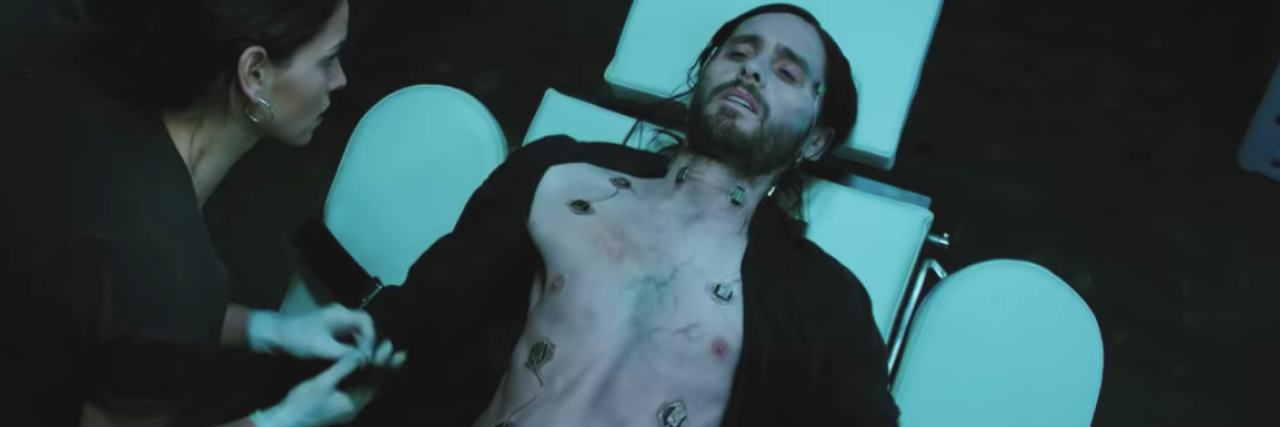Marvel's Newest Movie 'Morbius' Stars a Supervillain With an Illness
When I saw the trailer for “Morbius,” Sony’s upcoming film about a doctor turned pseudo-vampire, I wasn’t expecting another blow to people with disabilities and illnesses. If I had been familiar with the Marvel comics character, Michael Morbius, I would have known better. The trailer suggests the movie is sticking pretty close to the original material, in which Morbius (Jared Leto) lives with a rare blood disorder and turns himself into a blood-thirsty villain in an attempt at a cure.
This isn’t the first time Marvel has featured the “disabled person becomes evil” trope. In “The Amazing Spider-Man,” Dr. Curtis Connors tries to grow back his lost arm and turns himself into the Lizard. Viewers are supposed to sympathize with him because he was attempting to “improve” humans: “I spent my life as a scientist trying to create a world without weakness, without outcasts,” he says.
In “Ant-Man and the Wasp,” Ava Starr becomes the villain Ghost because she lives with chronic pain due to the quantum accident that killed her parents. She has the ability to phase through matter, but it is killing her. She doesn’t care who she hurts on the way to a cure. In the end, when she is cured, she is suddenly not a bad person any more. Her anger and willingness to do whatever it takes to get what she wants are suddenly replaced by a calm demeanor and respect for life. The erasure of her illness makes her “good.”
In addition to using a chronic condition as a villain’s origin story, superhero movies often give physical disabilities or deformities to their villains. Think Red Skull with his skeletal features, the Winter Soldier with his powerful metal arm, Gordon No Eyes with his eyeless face, Chen Wu with a missing eye, Taserface with his… face. The deformities aren’t there for any other reason than to make the villain look more frightening.
I get so tired of these stories. I have a chronic illness but I’m not a villain, nor does my illness make it more likely that I will become one. Seriously. I don’t even have the energy to shower some days, much less take over the world.
I’m constantly looking for myself in the movies I watch, for characters I can relate to, and I rarely find them. The stereotypes I do find suggest that people with chronic illnesses and disabilities aren’t OK the way we are, that we are ugly and that we need “fixing” in order to be part of society.
I’d like to see more heroes who struggle with disabilities and pain, just like I do. Give me more characters like Doctor Strange, who actually wrestles with his illness and comes to terms with the fact that he won’t be healed. Or Jane Foster from The Mighty Thor comics, who goes through nausea and weakness from cancer treatments, yet is still a superhero. Or Rogue from X-Men, whose inability to touch people gives a glimpse into the life of someone who has a condition no one else understands.
And if villains must have disabilities, I’d like to see more balance in representation, where non-villainous characters with disabilities are also present — characters who have a significant role in the story and aren’t just there to inspire the hero or play the victim. I’d like to see disabilities as simple facts that villains have to live with instead of visual representations or sources of their evilness.
I’d like to be considered more than a blood-sucking vampire waiting to happen.

